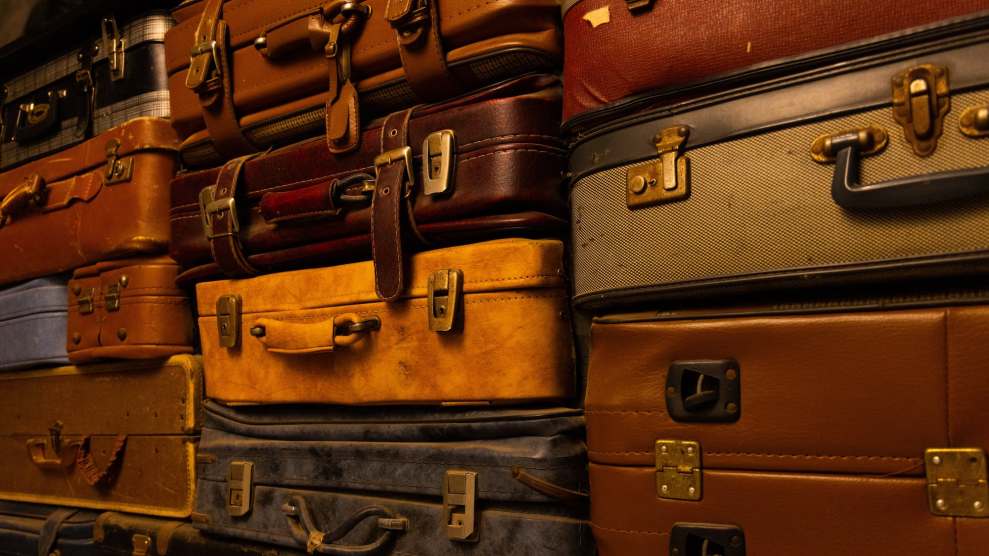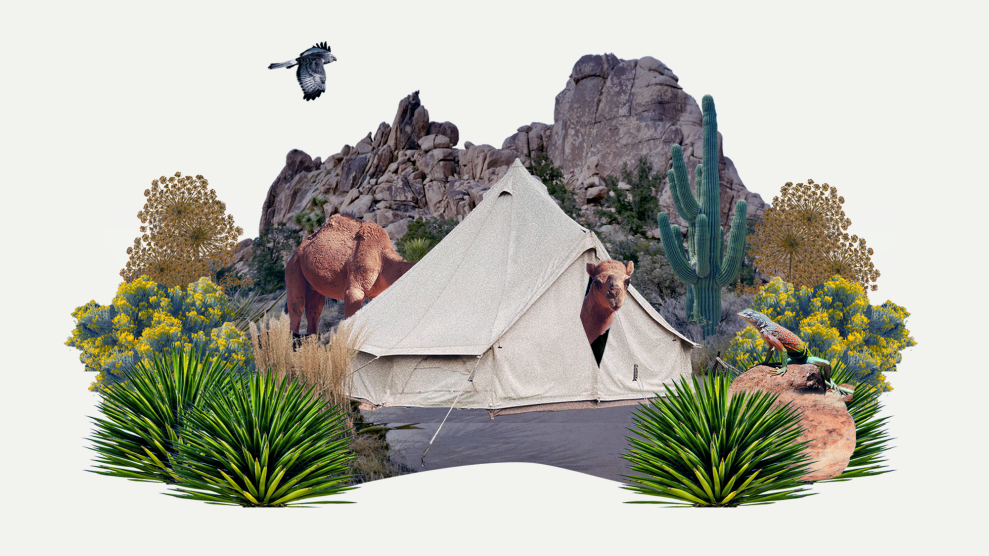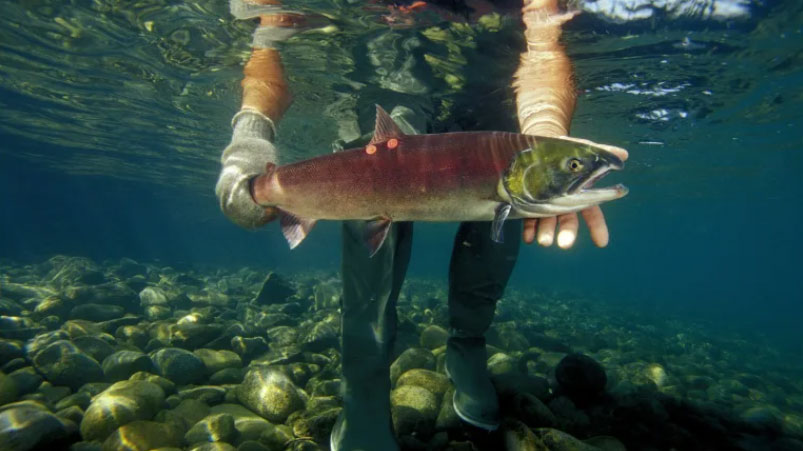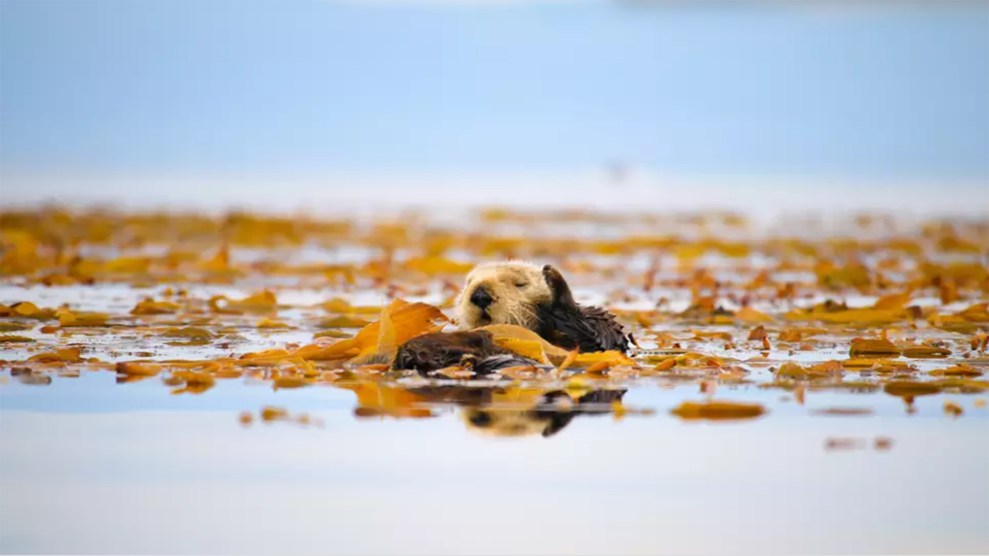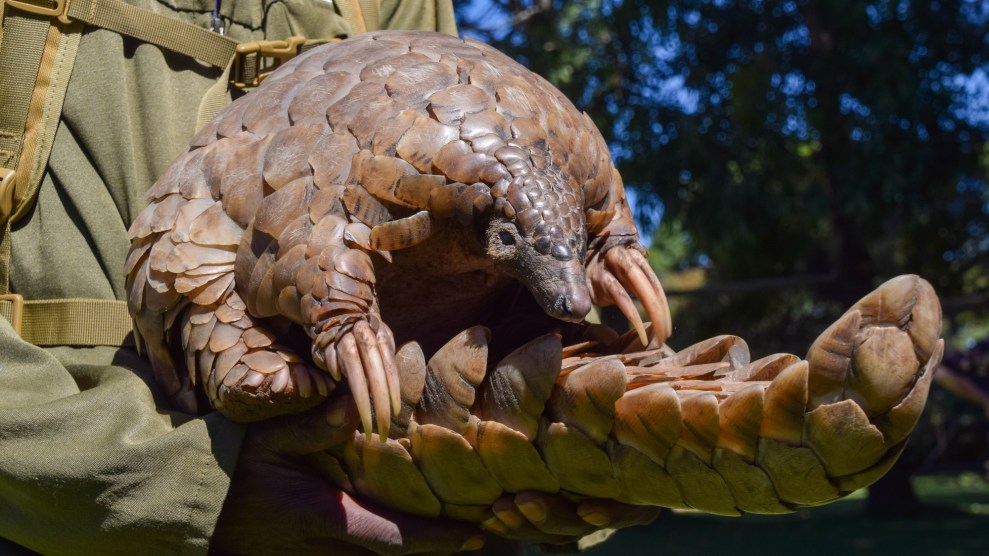
A staffer holds a Cape pangolin (Temminck's pangolin) at the Wild Is Life sanctuary and rehabilitation center in Zimbabwe. Vuk Valcic/SOPA Images/ZUMA
This story, in the words of veterinarian Mércia Ângela, was originally published by the Guardian and is reproduced here as part of the Climate Desk collaboration.
I had never seen a pangolin before I started working with them in Mozambique’s Gorongosa national park. They are the only mammal in the world covered with scales. I think they are so handsome—just seeing them makes me fall in love.
If you have never seen a pangolin, they have a cone-shaped head and snout, four short legs, small eyes, and a brilliant sense of smell. Their front claws are long to help them dig for food in the ground. They have a long sticky tongue but no teeth. When they feel threatened, they curl up in a ball to protect the parts of their bodies that do not have scales.
The pangolin in the main photo is a female called Boogli, who was rescued from traffickers and taken to our center as a baby. We took care of her until the time came to release her back into the wild. I can’t describe what it is like to hold a pangolin. It is unique. Usually they do not make noises—holding one in my hands only makes me want to protect them more.
“Pangolins are very important animals. They play a crucial role in the balance of ecosystems; they need to be protected. “
When I arrive for work as a vet at our pangolin rehabilitation center, which opened in 2018, I take the pangolins for a walk in the field with my colleagues. We find places that they like, with lots of ants and termites to eat as well as water and mud. We stay with them while they eat, play, and reconnect with nature for two to three hours before we take them back to sleep, making sure that someone is aways watching them.
We do not put collars on them like dogs, but carry them on our laps to different areas. They are nocturnal so they sleep a lot during the day, especially when it is very hot. Sometimes, we have baby pangolins that need milk, so we will feed them and monitor their weight to make sure they are growing. We need to see them every day so they can get food and water.
By some estimates, pangolins are the most trafficked animal on the planet due to demand for their scales for traditional medicine in Asia. When one arrives, I do a physical examination to check if it is injured, sick or dehydrated. Those that have been trafficked, have often spent a long time in captivity in terrible conditions, where they have been mistreated and tied up. Once they have recovered, they are released back into the wild—but that is not always immediate.
We have a team of rangers who work to combat poaching in Gorongosa. It is normal to have this issue in a conservation area with lots of fauna, especially in a country where there is hunger and unemployment—people who do not have work end up getting involved in illegal activities such as poaching.
My training in veterinary medicine lasted five years. After I graduated from Eduardo Mondlane University in Maputo, the capital here in Mozambique, I was lucky enough to start my internship at the pangolin rehabilitation center, which began operating fully in 2019. That is how I fell in love with them, after I had the opportunity to see them for the first time. I spend nearly all of my time here at the park.
I would like to say to the public, especially young people here in Mozambique, that pangolins are very important animals. They play a crucial role in the balance of ecosystems; they need to be protected. By being there to take care of them, I am giving hope that, despite all the threats they face and all the evil things they experience, it is possible for them to return to nature and live freely.
